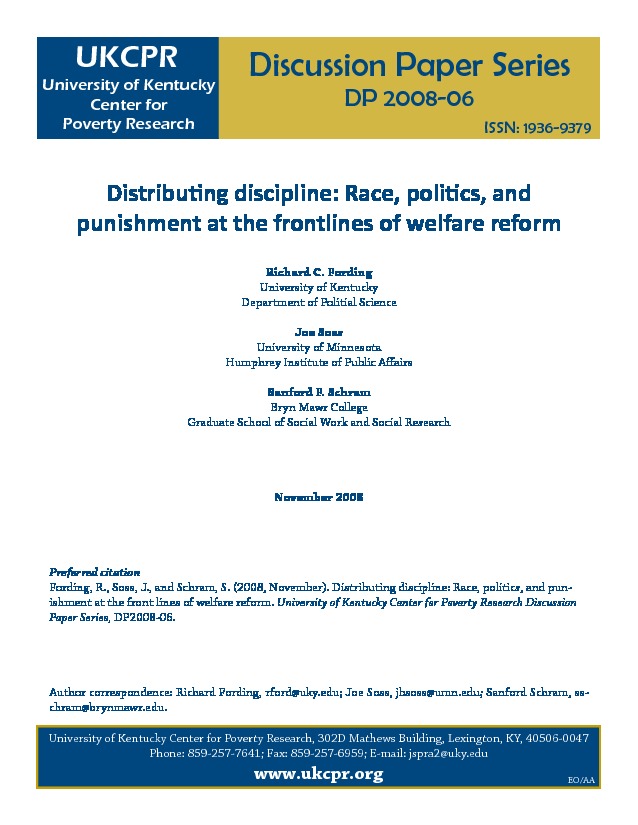Numerous studies have confirmed that race plays an important role in shaping public preferences toward both redistribution and punishment. Likewise, studies suggest that punitive policy tools tend to be adopted by state governments in a pattern that tracks with the racial composition of state populations. Such evidence testifies to the enduring power of race in American politics, yet it has limited value for understanding how disciplinary policies get applied to individuals in implementation settings. To illuminate the relationship between race and the application of punitive policy tools, we analyze sanction patterns in the TANF program. Drawing on a model of racial classification and policy choice, we test four hypotheses regarding client race and sanctioning. Our study does not support a simple story in which racial minorities are always more likely to be targeted for discipline. Rather, we find the impact of race to be contingent on local politics, administrative decentralization, and other client characteristics.
Research
Welfare ReformPDF Thumbnail
